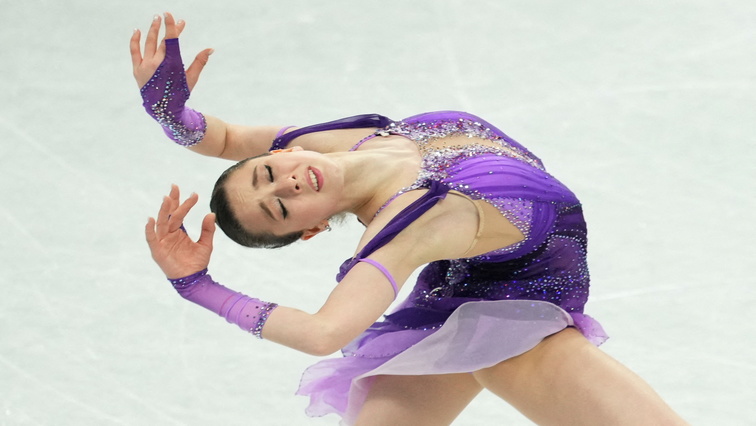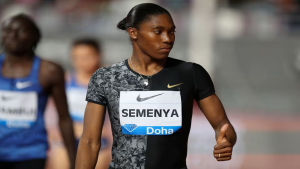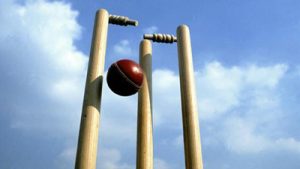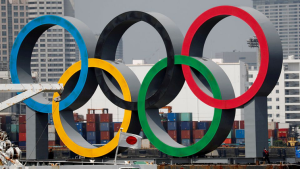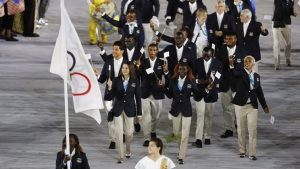From figure skating trailblazer to lightning rod for doping criticism at the Olympics, Russian Kamila Valieva has endured a mental and physical test that few 15-year-old girls will ever endure.
As the global spotlight dazzles on the elfin teenager, uncomfortable questions swirl around the sport and whether or not the minimum age for competitors – currently 15 – needs to be raised.
American Mariah Bell skated in the women’s singles on Tuesday and as she left the ice took a swipe at minors competing on the biggest stage.
“I absolutely believe that there should be an age limit,” the 25-year-old said when asked if the limit should be 17.
“I know for me, personally, I know when you’re growing there’s a lot of changes happening. There are minors competing… that’s a whole different thing.”
On Tuesday, Valieva finished top in the short programme of the women’s competition, dominating the event only a day after being cleared to skate by the Court of Arbitration for Sport, a decision that sparked global condemnation.
Child stars are hardly new in figure skating, and teenagers have won the women’s singles gold medal in six of the past seven Olympics.
However, Valieva’s positive drug test has shone light on a world where children are trained relentlessly in the pursuit of medals, and then quickly disappear as puberty changes their bodies and their results decline.
The treadmill of child figure skating champions has only quickened in recent years with the emergence of a dominant Russian programme spearheaded by Valieva’s coach Eteri Tutberidze.
The 47-year-old’s teenage prodigies are among few female skaters who can execute the quadruple jumps that produce high scores in competition and offer a key advantage.
Biomechanics experts say younger skaters may have an advantage with the quad because their narrow hips and shoulders could help them rotate faster in the air.
It’s a formula that has proved hugely successful for Russian figure skating while often leaving a short shelf-life for the athletes concerned.
Swedish skater Josefin Taljegard said that was something that needs to be addressed.
Pushing back on the suggestion the age limit should be lifted, she said: “It is difficult to answer because we don’t want the junior worlds (championships) to be better than the normal worlds.
“It’s not like Valieva isn’t good at performing,” the 26-year-old added. “If it was only the jumps, then maybe, but they’re good at everything so it’s so hard to say. Maybe instead of putting a lower age limit, encouraging people to stay in the sport a little bit longer.”
STRUGGLE WITH ANOREXIA
Alina Zagitova, who was 15 when she won the gold medal at the 2018 Pyeongchang Olympics, left Tutberidze’s training group and competition over two years ago.
Yulia Lipnitskaya, who as a 15-year-old helped Russia to gold in the team event at the 2014 Sochi Games, retired in 2017, citing a long struggle with anorexia.
Rival coaches have said the minimum competition age has enabled the Russian success and turned the ice rink into a children’s battleground.
Olympic medallist Adam Rippon, who coaches Bell, said his 25-year-old national champion would have little hope of beating Valieva and her 17-year-old compatriots Alexandra Trusova and Anna Shcherbakova at Beijing.
“If there are two people who are competing against each other, like a woman that gets a period and has breasts and has hips against a young little girl who is 80 pounds, is it a fair playing field?” he asked Reuters.
“Our bodies come in all shapes and sizes. But especially in women’s sports, developmentally, what you’re able to do and what’s safe for you to try as you get older changes.”
Apart from injuries, former figure skaters have spoken of the emotional toll on children, with some suffering mental illnesses including depression, eating disorders and body dysmorphia as they try to keep in shape.
Canadian pairs skater Kirsten Moore-Towers, who won a team silver medal at the Sochi Olympics, said in December that she developed an eating disorder at 15 after being encouraged by a coach to purge after eating to lose weight.
“Toxic practices in sport, like public weigh-ins, body shaming — those things need to end,” she told Canadian newspaper, the Globe and Mail.
Despite calls to raise the minimum competition age for the welfare of children, global figure skating has resisted them.
A proposal brought by Dutch figure skating officials to raise the age from 15 to 17 was rejected at a meeting of the sport’s global governing body, the International Skating Union, in 2018.
If that proposal had been successful, figure skaters like 16-year-old American Alysa Liu, would have been barred in Beijing.
The age issue came into the spotlight again in 2020 following the sudden death of Ekaterina Alexandrovskaya in Moscow at the age of 20, two years after she represented Australia in the pairs event at Pyeongchang.
Alexandrovskaya, who switched nationality from Russia to Australia at the age of 16 to train for the Olympics, suffered from depression and alcohol problems and quit the sport after being diagnosed with epilepsy, media reported.
About a month after her death, ISU President Jan Dijkema told Australian media that the minimum age might be discussed at the ISU’s 2021 congress, which was then cancelled due to COVID-19.
The ISU did not provide comment to Reuters on the appropriateness of the minimum age of 15, or whether the governing body was considering raising it.


